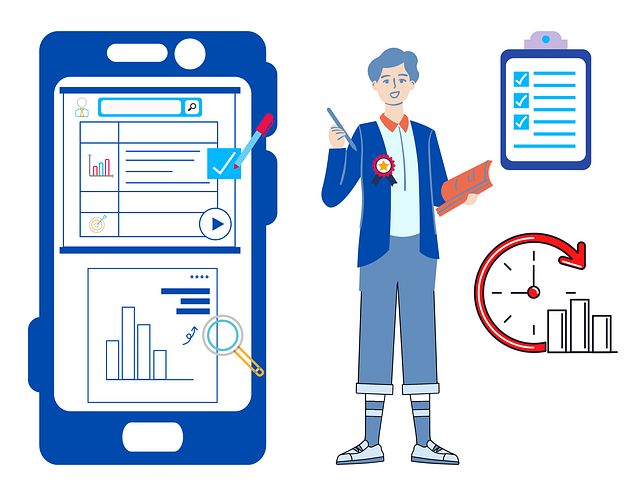In the digital age, AI is transforming automotive service centers by implementing cutting-edge AI marketing strategies. Through data analysis and automation, these shops personalize services, predict maintenance needs, and optimize scheduling, leading to enhanced customer satisfaction and loyalty. Effective AI training programs empower employees, focusing on integrating artificial intelligence into daily operations for improved efficiency. Implementing AI marketing strategies boosts online visibility, attracts more customers, and enhances the overall customer experience, making AI an indispensable asset for modern automotive service centers.
“Unleash the power of artificial intelligence (AI) in transforming automotive service centers into efficient, forward-thinking businesses. This article explores the immense potential of AI, offering insights on how service centers can revolutionize their operations. From understanding customer needs to streamlining scheduling and diagnostics, AI is a game-changer. We delve into creating tailored AI training programs for employees, ensuring they embrace new technologies. Furthermore, discover effective AI marketing strategies to boost shop visibility and engage customers in the digital era, utilizing AI marketing for automotive shops.”
- Understanding the Potential of AI in Automotive Service Centers
- Developing Effective AI Training Programs for Employees
- Implementing AI Marketing Strategies to Enhance Shop Visibility and Customer Engagement
Understanding the Potential of AI in Automotive Service Centers

In today’s digital era, AI is no longer a futuristic concept but a powerful tool that can revolutionize automotive service centers. By integrating artificial intelligence into their operations, these shops can unlock significant potential and stay ahead of the competition. AI marketing strategies for automotive shops involve using machine learning algorithms to analyze vast amounts of data, from customer preferences and vehicle maintenance records to market trends and competitor insights. This enables businesses to offer personalized services, predict maintenance needs, and streamline scheduling, ultimately enhancing customer satisfaction and retention.
Furthermore, AI can automate repetitive tasks such as inventory management, parts ordering, and even basic diagnostics, allowing service center employees to focus on more complex repairs and strategic planning. The potential of AI extends beyond efficiency; it offers insights into future trends and helps shops adapt their services accordingly. By leveraging these capabilities, automotive service centers can improve their marketing strategies, target the right customers, and position themselves as innovative, customer-centric businesses in a highly competitive market.
Developing Effective AI Training Programs for Employees

Developing effective AI training programs is crucial for empowering employees in modern automotive service centers. These programs should focus on teaching staff how to integrate artificial intelligence into daily operations, enhancing efficiency and customer satisfaction. By providing hands-on training sessions, shops can ensure that workers understand AI marketing strategies tailored to their industry, such as predictive maintenance reminders or personalized service recommendations.
Customized curricula that address specific roles within the shop are essential. Technicians, for instance, may benefit from learning how AI systems can assist in diagnosing complex vehicle issues more accurately and quickly. Service advisors can be trained on leveraging AI-driven customer insights to upsell relevant parts and services, while management personnel can gain skills in using AI analytics for strategic decision-making.
Implementing AI Marketing Strategies to Enhance Shop Visibility and Customer Engagement

Implementing AI marketing strategies is a game-changer for automotive service centers looking to boost their online visibility and attract more customers. By leveraging artificial intelligence, shops can personalize marketing efforts, targeting specific vehicle models, makes, and even individual driver preferences. This level of customization allows for highly tailored campaigns that resonate with potential clients, increasing the chances of engagement and conversions.
AI-driven tools can analyze vast amounts of data to identify trends, understand customer behavior, and predict maintenance needs. For instance, predictive analytics can anticipate when a vehicle is due for service based on past records and driving patterns, enabling proactive marketing strategies. Through intelligent automation, automotive service centers can send targeted reminders, offer personalized promotions, and enhance the overall customer experience, fostering loyalty and word-of-mouth recommendations.
AI training is transforming automotive service centers, empowering employees to provide more efficient and accurate services. By developing tailored AI training programs, centers can maximize the benefits of this technology. Additionally, implementing AI marketing strategies enables these businesses to increase their online visibility and engage customers effectively in today’s digital era. Incorporating AI marketing for automotive shops is a game-changer, ensuring they stay competitive and meet the evolving needs of their clientele.
